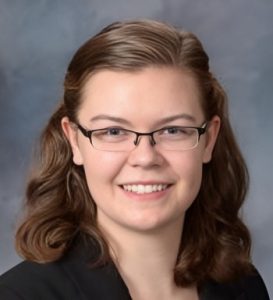
Charlotte Darby, a PhD student in the Department of Computer Science, first became interested in teaching when she mentored students as an undergraduate and, later, as a graduate student. In the fall of 2017, Darby was offered the opportunity to work closely with students again through the Hopkins Engineering Applications & Research Tutorials (HEART) program.
The HEART program introduces new undergraduate students to cutting-edge engineering research and its applications to society, while also preparing students to conduct their own research projects in the future. The small classes are taught by advanced graduate students and postdoctoral fellows.
Darby noticed that most HEART courses had a biomedical focus and wanted to expand the offerings.
“I had a thought that since the Department of Computer Science is growing in size and scope, especially in fields that are not strictly biomedicine-related, that perhaps some seminars with a systems and theory focus could be developed by the talented folks in CS,” said Darby.

Charlotte Darby
Her course, “Exploring Algorithms for Hard Problems in Computer Science,” examined optimization problems across engineering disciplines that have been classified by computer scientists as computationally “hard” to solve. Students focused on graph problems, including the traveling salesman problem, pathfinding, and graph coloring. Lessons were based around visual representations and interactive activities.
This subject matter was especially interesting to Darby, whose research interests are in computational genomics and sequencing techniques.
“Although I work in genomics research, I’d say my class represents the theory sector,” she said. “My undergraduate and graduate research had more application in biology, but one of the things that I really liked learning about as a student of computer science was more of the theory, how algorithms are developed to solve particular theoretical problems. How can we pose a real-world problem in some form of a mathematical formula?”
Darby is excited to teach the course again in the fall. This time, she plans to include new course material on current events in cybersecurity.
“It was a positive experience and I learned a lot about teaching since I got to design the course from scratch!” she said.
Learn more about Darby’s course here.